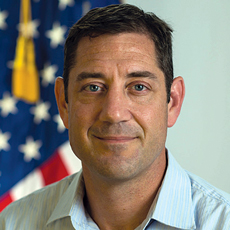
State survey agencies have already begun to resume regular survey activities at nursing homes across the country, according to a top Centers for Medicare & Medicaid Services official.
“We’ve been conducting through our state partners the infection-control-focused surveys … but we need to start surveying for the other Requirements for Participation,” said Evan Shulman, director of CMS’ Division of Nursing Homes.
“You should start to see, if you haven’t already, some of your state survey agencies coming out and conducting standard surveys or complaint surveys for complaints that came during the pandemic,” he added.
Shulman’s comments came during a virtual session of LeadingAge’s annual Meeting & Expo. The session was recorded about one month ago before airing Thursday.
Enforcement versus understanding
Shulman noted that though surveys are resuming, CMS is trying to “walk a fine line between enforcing compliance and what is within a facility’s control.” He explained that if a facility had a non-compliance issue during the pandemic then it wouldn’t have had an opportunity to prove compliance since no surveys were being conducted.
Shulman said federal guidance dictates that CMS “will not impose enforcement penalties that go back during the time of the pandemic because, again, that facility would not have had the opportunity to demonstrate compliance.”
“We need to get back to the way things were prior to the pandemic and live in our new normal, so you will start to see some new guidance come out related to surveys on how to conduct standard surveys through this pandemic,” he said.
He added that providers will soon see guidance related to “other information that we had pending [and] planned to be released prior to the pandemic but [was never released].”
“These are things like changes to Phase 2 Requirements of Participation, and also Requirements of Participation related to Phase 3,” Shulman said. “So, be on the lookout for that information.”
Testing EMS, nonemergency staff
Echoing thoughts he provided during the National Association of Directors of Nursing Administration in Long Term Care (NADONA) conference earlier this month, Shulman addressed how providers should approach testing for nonemergency and emergency transportation workers who come to facilities. He said it’s “very important” that Emergency Medical Services staff are allowed to enter facilities to handle emergencies with residents.
“We do not believe that EMS staff need to be tested prior to entering the facility or at any time that could delay their treatment of the emergency. So EMS staff should be allowed to come in, tend to the emergency and leave with the resident if they’re taking them to the hospital,” Shulman said.
The thinking is different for nonemergency transportation staff who should be tested because of the risk they pose.
“Even though a transportation driver may not come into the facility, that transportation driver may be transporting many different residents from many different facilities to many different other healthcare locations, which could place that person at an increased risk for COVID-19. If that’s the case, we would certainly want to identify that to prevent that person from spreading the disease,” he explained.
While answering questions Thursday via chat, Shulman noted that CMS is considering requiring surveyors to be tested for COVID-19 before entering facilities.
“At this time, if you have concerns about a surveyor entering the facility, you should reach out to the state agency. For example, if a surveyor has symptoms of COVID-19, they should not enter,” he responded.
Staff compliance with infection prevention measures
Shulman added that investigators have seen instances where workers are not following the core principles of infection prevention at all times.
“When staff are in resident’s rooms, we’re actually seeing general compliance with things like donning and doffing PPE. However, if the core principles of infection prevention are not done when staff are not in a resident’s room, everything that was done in a resident’s room doesn’t work. It becomes worthless,” he said.
Shulman warned that nursing home staff should be “on guard all the time.”
“If you’re out there and you see one of your colleagues not adhering to these core principles: Call them out,” he said. “Think of this way: Would you rather be called out by one of your colleagues or called out by a surveyor? And, we hope it’s the former.”





